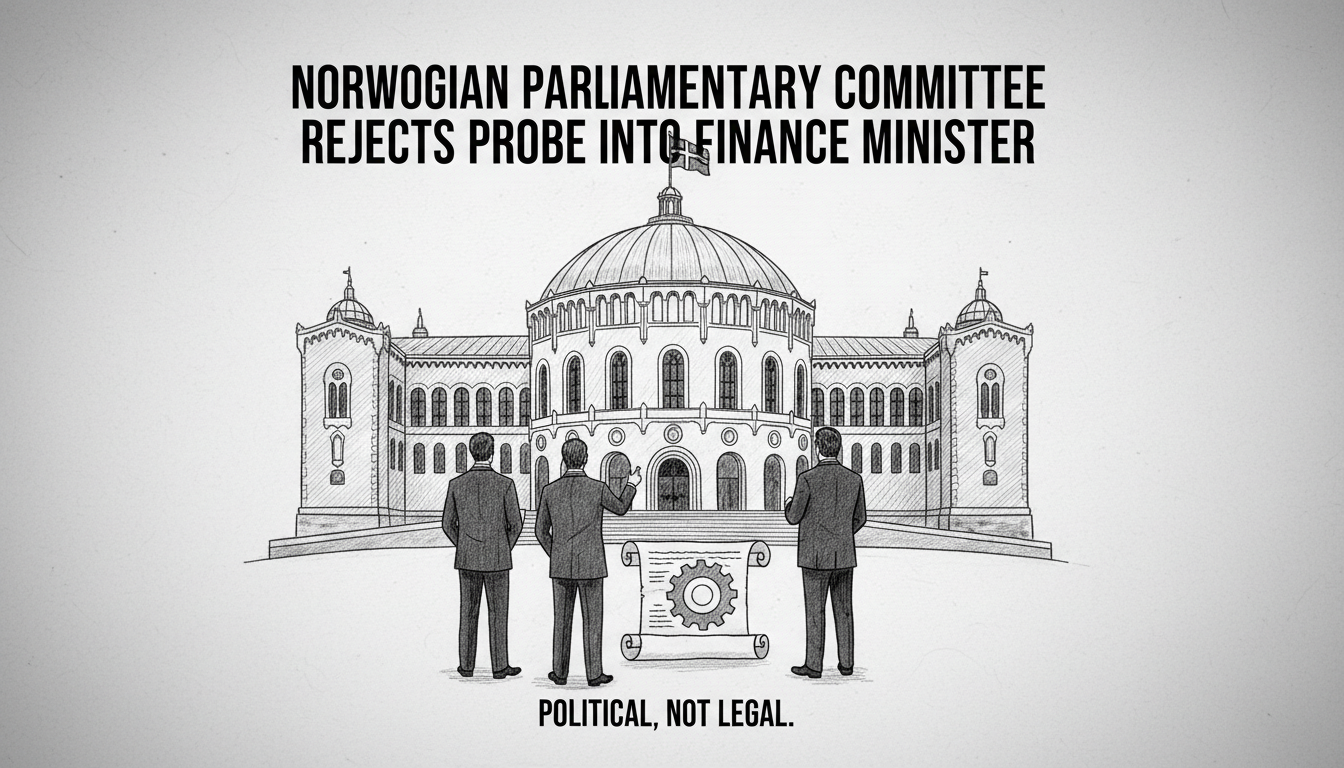A Norwegian parliamentary committee has decided against opening an investigation into Finance Minister Jens Stoltenberg. The Control and Constitutional Committee will not question Stoltenberg about the paused Ethics Council work.
The committee received a formal request from five organizations last week. These groups asked the committee to examine whether Stoltenberg broke the law. They alleged he skipped required consultations about the oil fund's ethics framework.
Committee chairman Per-Willy Amundsen explained the decision in a public statement. He said the request raises political questions rather than legal ones. The parliament already made a clear decision with broad majority support, he noted.
Amundsen stated the committee's role involves conducting oversight, not acting as a supreme court. He emphasized they should not undermine political decisions after they are made. This matter concerns politics rather than legal technicalities, he concluded.
This decision represents a significant moment in Norwegian parliamentary oversight. The Control and Constitutional Committee serves as a key watchdog in Norway's political system. It monitors whether the government follows laws and constitutional principles.
The ethics framework for Norway's Government Pension Fund Global remains controversial. This massive sovereign wealth fund manages the country's oil and gas revenues. It follows strict ethical guidelines when making investment decisions worldwide.
Stoltenberg's decision to pause the Ethics Council work drew criticism from environmental and human rights groups. These organizations argue proper consultation processes must be followed. They maintain transparency remains crucial for the world's largest sovereign wealth fund.
The committee's refusal to investigate suggests political support for Stoltenberg's approach. It indicates that parliamentary majority backs the minister's handling of the ethics framework review. This outcome demonstrates how political majorities can influence oversight mechanisms in parliamentary systems.
International observers follow Norway's oil fund ethics decisions closely. The fund sets global standards for responsible investment practices. Its exclusion of companies for ethical reasons often makes international headlines.
This case highlights the balance between political decision-making and legal oversight in Nordic democracies. Norway's system allows broad parliamentary majorities considerable discretion. The committee appears cautious about challenging decisions with wide political support.
The five organizations that requested the investigation may pursue other avenues. They could seek judicial review or continue public advocacy. The ethics framework debate will likely continue despite this parliamentary decision.
Norway's approach to sovereign wealth fund management remains unique globally. The country combines massive fossil fuel revenues with progressive ethical investment policies. This creates constant tension between economic interests and moral principles.
The committee's decision represents a victory for the finance minister. It allows his ministry to continue reviewing the ethics framework without parliamentary investigation. The outcome maintains the current government's policy direction on this sensitive issue.

